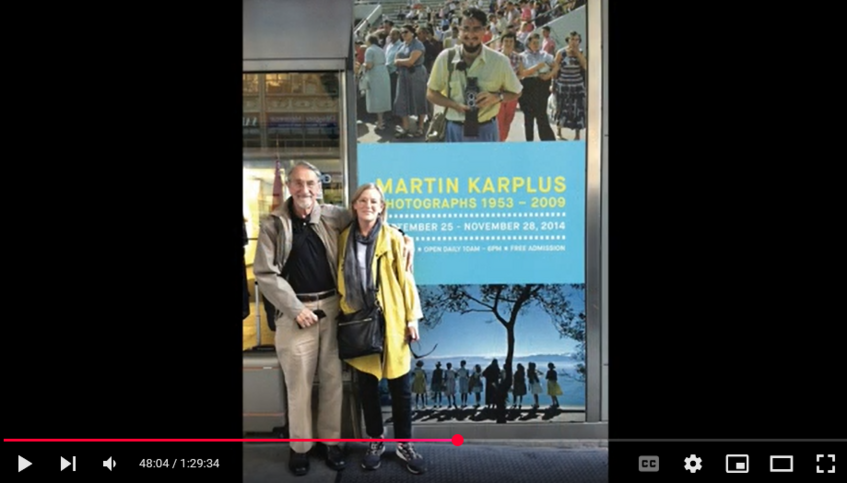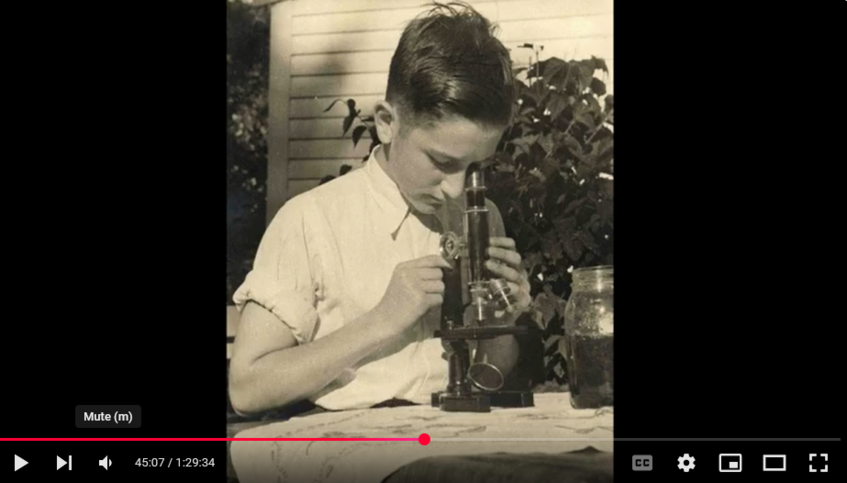A Tribute to Martin Karplus (1930 - 2024)
The life of Martin Karplus was defined by his relentless curiosity and desire to understand the inner workings of the world. He was awarded the Nobel Prize in Chemistry for giving scientists the tools to predict chemical processes through simulations and left an enduring impact on science. But on March 15, the day he would have turned 95, it was his personality, humanity, and mentorship that took centre stage. Friends, family, former students, and colleagues who spent formative years with him came together to celebrate the person beyond the science.

More than a hundred people gathered at the American Academy of Arts & Sciences in Cambridge, with many more joining online, to honour the life of an exceptional scientist and extraordinary man. The community of “Karplusians” – a network spanning generations of scientists and universities worldwide – was built through Martin Karplus’s deep sense of family and his ability to leave a lasting impression on those he encountered. Family members, friends, and scientists – many of his former students now professors and experts in their fields – shared memories not only of Martin Karplus the scientist and mentor but also of the passionate cook and photographer.
There was also another Martin Karplus: the boy who, at the age of eight, was forced to flee Vienna with his family and arrived in the United States as a refugee. His eldest daughter, Reba, spoke of his strong Jewish identity, his pride in a family heritage rooted in education, humanism, and justice—values that shaped his political views—as well as his appreciation of family achievements.

Martin Karplus’s relationship with his birth country remained uneasy. Stefan Boresch, a former PhD student in the Karplus group and now a professor at the University of Vienna’s Faculty of Chemistry, maintained close ties with the family. He translated Martin Karplus’s Nobel Lecture into German and edited the German edition of his autobiography. Boresch recalled a telling incident: during a conference in Vienna in the 1990s, Martin Karplus spent significant time and effort to gain permission from the Austrian Ethnographic Museum to view the collection his great-aunt, Eugenie “Jenny” Goldstern, had bequeathed. Unlike Martin Karplus’ immediate family, the ethnographer had remained in Austria and was murdered in Sobibor in 1942. Her collection was finally exhibited in 2004.
In August 2024, Martin Karplus received Austria’s highest civilian honour in a ceremony at Harvard, presented by the Austrian ambassador. “It had a particular joy, I think,” said his daughter, “that they recognized the same Martin Karplus who had fled Austria as a Jewish child in thirty-eight.”
Stefan Boresch, who represented three Austrian “Karplusians” at the event, concluded his tribute: “Martin applied analytical thinking and thorough consideration of all sides not only to science, but also to politics and, in a sense, to human interaction, which more often than not led him towards the right – or a right – approach. I have benefited immensely from Martin as a scientific mentor. In attempting to honour his memory, I hope to have learned a little bit from him on this wider plane as well.”
Watch the ceremony on YouTube
Links
- In memoriam Martin Karplus (1930 – 2024), Website Faculty of Chemistry, in German
- Late honour for an Austrian exile: Martin Karplus receives the Republic's highest award, Website Faculty of Chemistry, in German)
- Honorary doctorate from the University of Vienna for Martin Karplus, Website der Universität Wien, in German
- Martin Karplus, Facetten meines Lebens, Verlag der Österreichischen Akademie der Wissenschaften (2023)
- The collection of Eugenie Goldstern at the Website of the Austrian Museum of Folk Life and Folk Art
